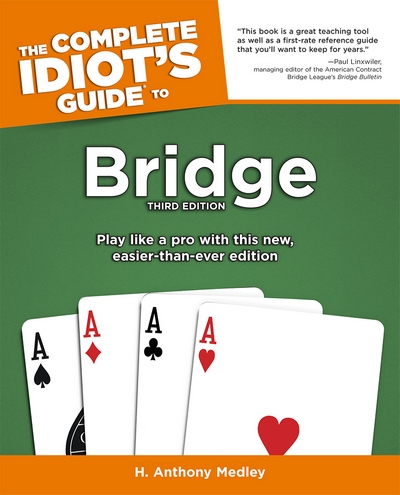| The first and second editions of Complete Idiot's Guide to Bridge by H. Anthony Medley comprised the fastest selling beginning bridge book, going through more than 10 printings. This updated Third Edition includes a detailed Guide to Bids and Responses, along with the most detailed, 12-page Glossary ever published, as well as examples to make learning the game even easier. Click book to order. Available in all bookstores and on Kindle. | ||
|
Maria by Callas (7/10) by Tony Medley Runtime 113 minutes A few years ago a friend invited me to an operatic performance. She said that she knew I was not an aficionado, but that this was right around the corner from me and it would be the best-loved arias from the great operas sung by the most outstanding young singers in Los Angeles. Acknowledging my disaffection for Opera, I agreed to come as a favor to her, but only on the condition that I could leave at intermission if I so desired without any guilt. She agreed. After a few performances I could not wait for intermission to arrive. When it did, I skadoodled, and my friend was not offended. I just do not find Opera music entertaining. This is a documentary about Opera great Maria Callas without narration, which is its big weakness. Written and directed by Tom Volf, the entire film is either Maria speaking herself, often through interviews with people like David Frost, or an actress (Opera star Joyce DiDonato) reading things that Maria said or letters that she wrote. This is Volf’s first turn as a director. While this might be a novel way to make a documentary, it has a lot of deficiencies. One is that it never states the year that Maria was born, at least I did not see it. You have to wait until the end when it advises that she died in 1977 at the age of 53. Quick arithmetic determined that she was born around 1924 (actually 1923). But the age of someone who is the subject of a documentary is of importance to the viewer so that they know what age the subject was during different periods in their life. Worse, there are pictures galore of Maria with lots of different people. The other people in the pictures are never identified. In fact neither are Maria and some of the better-known people identified, although some might recognize them, like Jackie Kennedy and Ari Onassis. Who are the others? It also alludes to important incidents in her life without explaining. For instance, Rudolph Bing is shown disinviting Maria from appearing at the Metropolitan Opera in New York City (The Met). Then she is interviewed for her reaction. It would be nice to know what the issue was and the year (it was 1958), but the viewer is left pretty much in the dark or to try to put it together from what each says. There are other incidents that needed to be explained and located chronologically, but you get the picture. This film desperately needs narration. For me, there were far too many archival films of Maria singing entire arias from operas. The only one I enjoyed was “L’amour est un oiseau rebelle” (Love is a Rebellious Bird), aka Habañera, from Bizet’s Carmen, one of my favorite songs. The rest of the arias left me cold. I would have preferred to learn more about her than the movie told instead of listening to arias. On the positive side, the many interviews show her as a sensitive, beautiful woman (much more beautiful than I had thought), not the tempestuous diva that has been her unfortunate reputation. Volf does a good job of capturing her personality. The bottom line is that if you love opera, you should love this. Not being an aficionado, I found it entertaining and informative, but exasperating in what it omitted.
|
||
